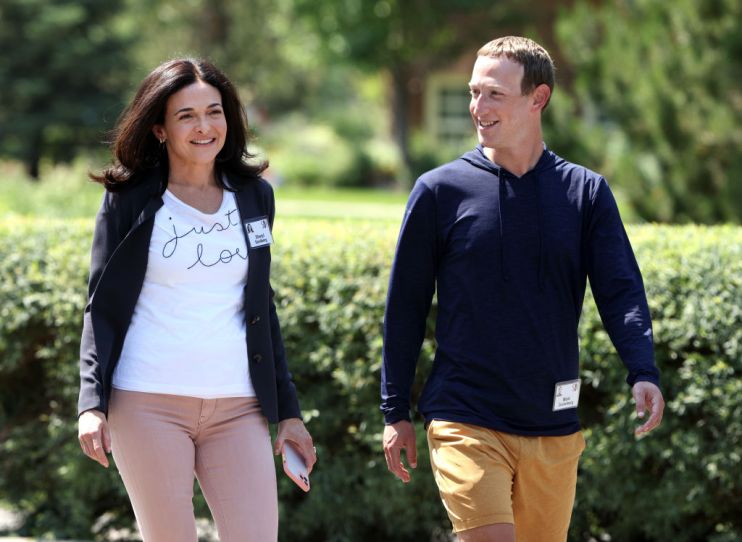The tale of Big Tech’s reckoning was spelled out by Rockefeller’s downfall

The Austrian economist Joseph Schumpeter described an effective free market as a “gale of creative destruction”. Old companies and outdated ideas would be cast aside by the market’s pursuit of the new, and the consumer would be the winner. It is little surprise then that incumbents tend to do all they can to arrest the gale.
The playbook for doing so was written by the American oil magnates – better known as the “robber barons” – of the late nineteenth century. In the 1870s, a generation of American entrepreneurs dug for oil and sought their fortunes, until, as one prospector’s daughter put it, “a big hand reached out from nobody knew where, to steal their conquest and throttle their future.”
The author of those words was a journalist called Ida Tarbell. The hand that throttled her father’s ambition was John D. Rockefeller’s. His company, Standard Oil, either bought up its competitors or undercut them to the point of bankruptcy. Soon enough, Rockefeller controlled 80 per cent of the American oil industry.
It took the crusading journalism of Tarbell to break his stranglehold. America’s antitrust legislation, which followed decades of her campaigning, eventually broke Standard Oil into pieces. The legislation, designed by Senator John Sherman, sought to ensure no company could buy its way to dominance of the market. Capitalism’s destructive gale, it seemed, would never be restrained again.
Yet history has a nasty way of repeating itself.
Were he alive in 2012, Rockefeller would surely have recognised something of himself in an exchange between Facebook founder Mark Zuckerberg and his Chief Financial Officer, David Ebersman.
In emails made public seven years later, the two discussed Zuckerberg’s desire to acquire a plucky, young competitor called Instagram.
A cautious Ebersman thought Facebook should not attempt to “neutralize a potential competitor” in this way. His opposition was not based on moral or legal grounds, however, but on practical ones. The gale of creative destruction, he thought, would not so easily be stopped. With Instagram gone, “someone else will spring up immediately in their place.”
Zuckerberg disagreed. An acquisition would buy Facebook “time”, he argued, snapping up a new technology “before anyone else can get close to their scale again.”
Neither, it seemed, knew their antitrust law. Forty-five minutes later, a carefully worded email emerged from Zuckerberg’s account, suggesting he had talked to someone who did. “I didn’t mean to imply that we’d be buying them to prevent them from competing with us in any way,” he wrote, ridiculously, after so obviously stating the opposite in his previous email.
When these emails eventually saw the light of day, Facebook was being discussed at an antitrust subcommittee in the US Congress.
Zuckerberg’s absurd second email was presented to lawmakers with a tongue-in-cheek headline, written by antitrust lawyers who appeared to be enjoying themselves, which stated simply: “whoops”.
Yet for all that, Zuckerberg has prevailed. Instagram was acquired, and, two years later, Whatsapp was too. Facebook’s growth has continued at dramatic pace.
Still, seven years later, the acquisitive frenzy of the tech titans continues. This week, more evidence of it was unearthed. In analysis published by the Financial Times, it transpires that the tech giants have spent some $264bn acquiring competitors worth less than $1bn this year, a figure twice the last recorded high.
Yet, to followers of Schumpeter, this feeding frenzy may not be as galling as it seems. The Big Tech firms appear to have seen the writing on the wall. A new antitrust movement has the ear of America’s President. Lina Khan is an antitrust crusader to match Ida Tarbell, and under Biden she Chairs the Federal Trade Commission, America’s competition regulator.
The Tech firms’ voracious appetite for small companies and their nascent technologies suggests they know their window is narrow. It seems their goal is – to use Zuckerberg’s formulation – to buy themselves as much “time” as they can, throttling as many emerging technologies as possible before they grow too big to stop.
The challenge for America’s legislators, and legislators all over the world, is similar. They must approach their challenge with the same haste. After all, the faster they can legislate, the less time we must wait before Schumpeter’s gales are allowed to blow again, and Big Tech is finally forced to reckon with competition.